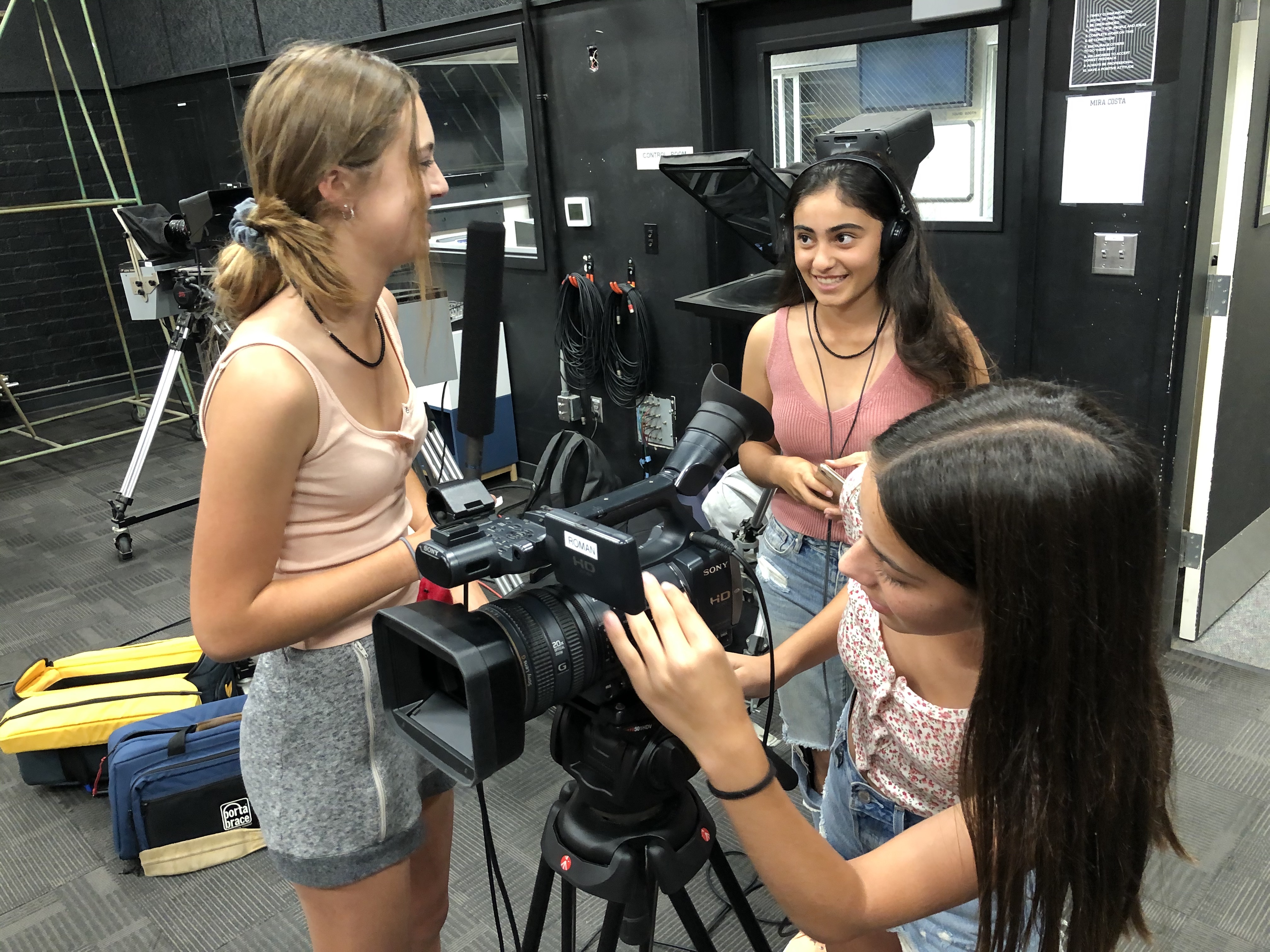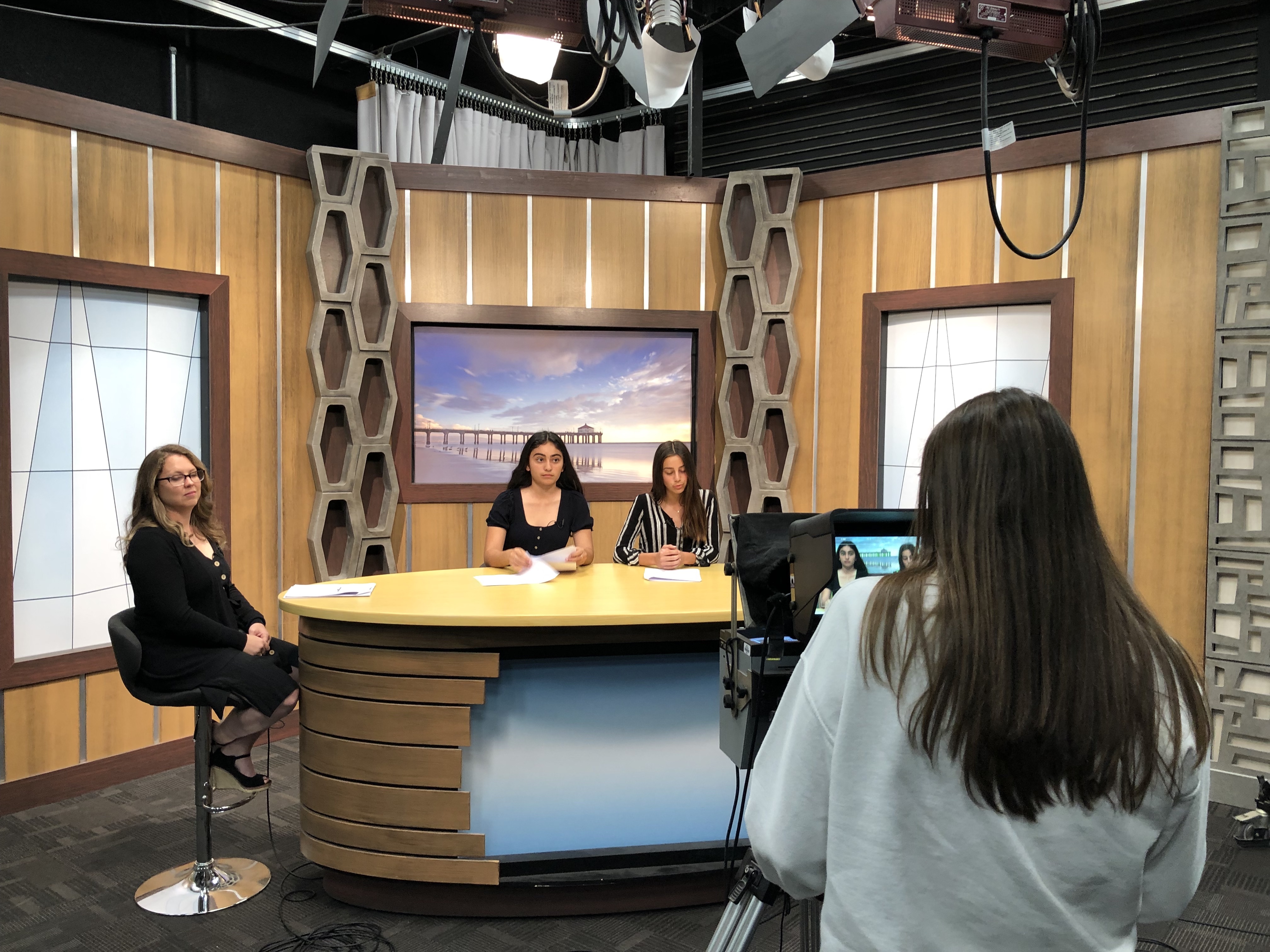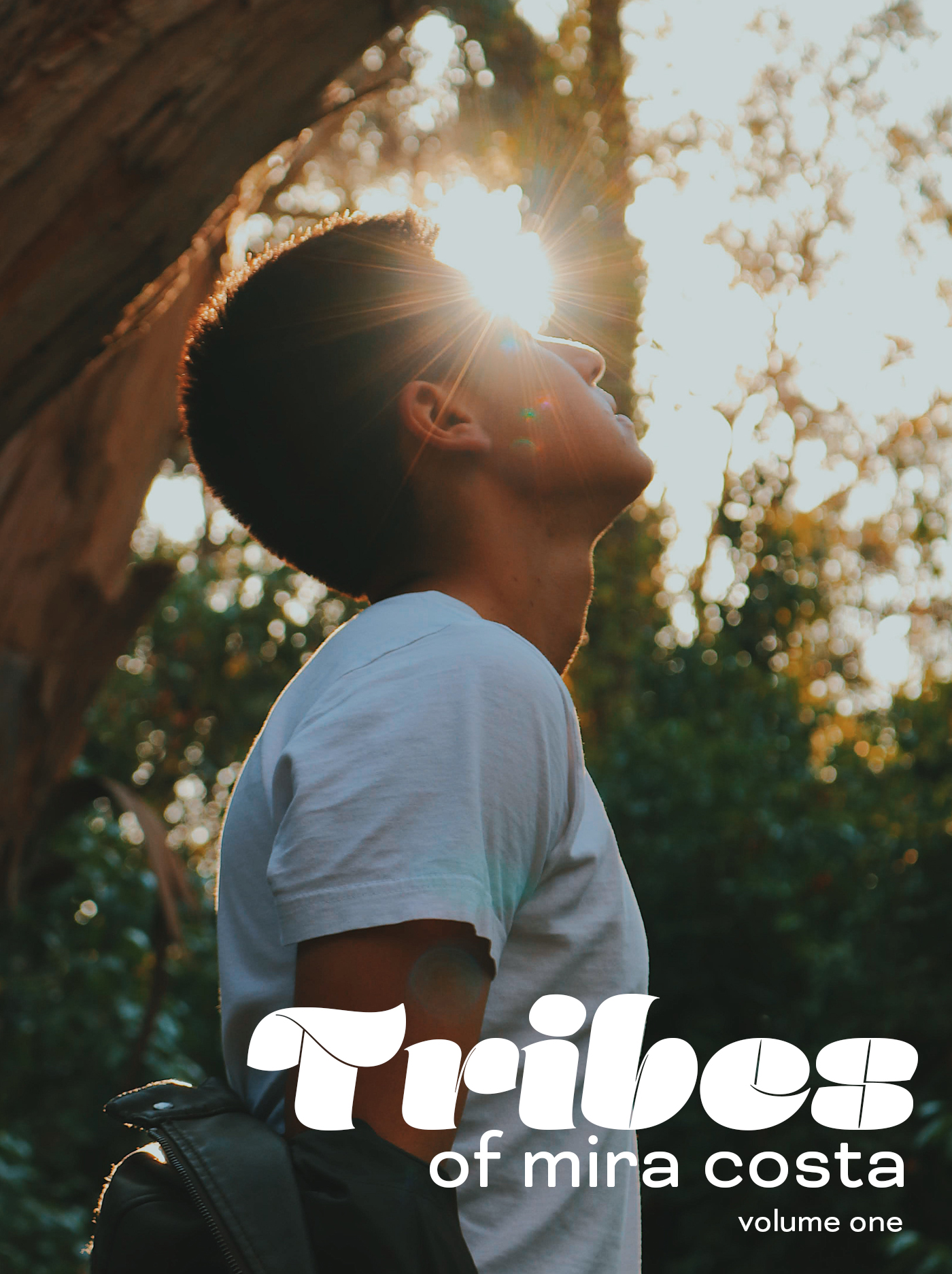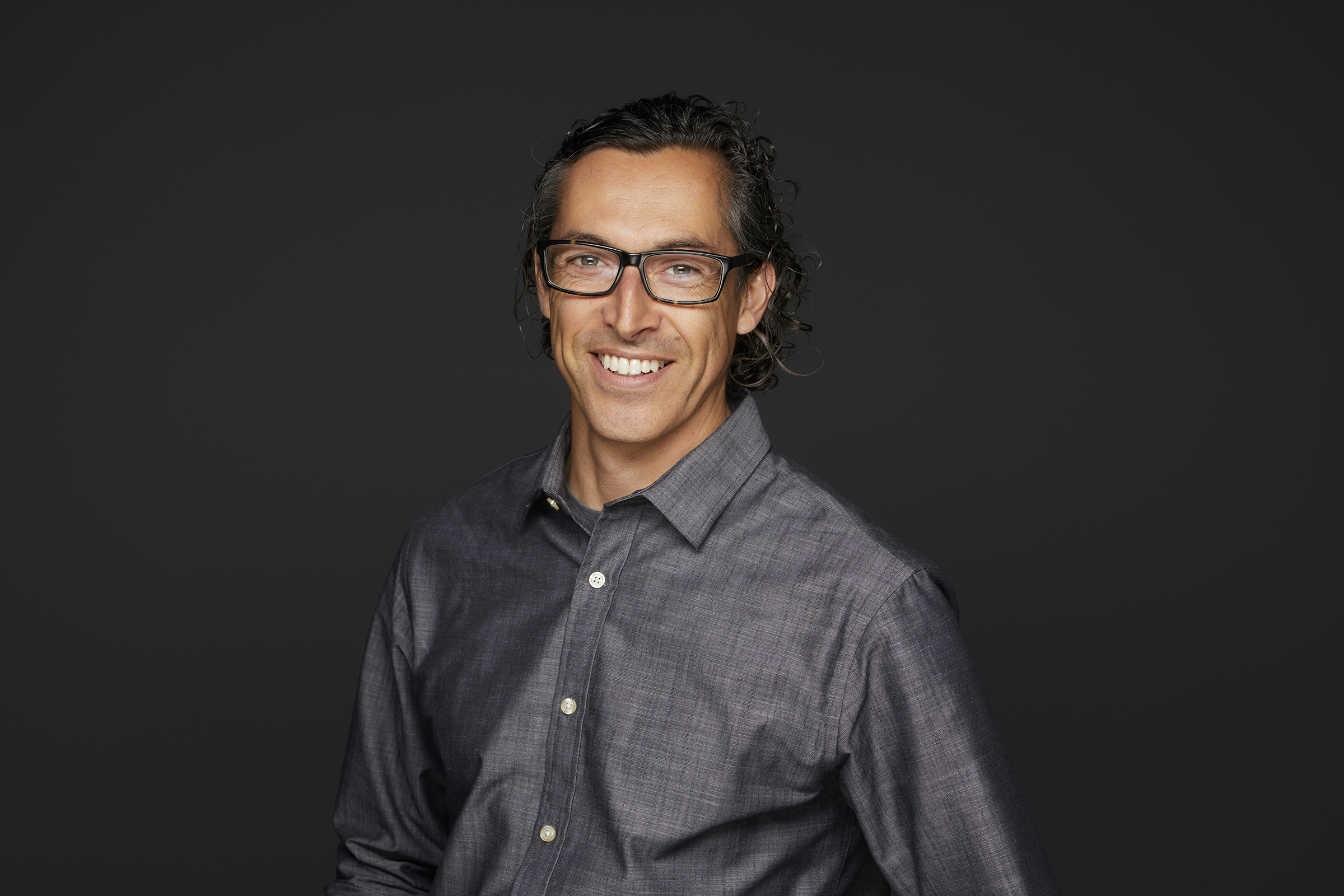How It’s Done: Reading Students through Digital Storytelling
One broadcast journalism teacher uses digital storytelling to share the world with his students, and his students with the world. In the process, he learns the stories of the students as well as their subjects.

After brainstorming ways to peer coach, two virtual charter school teachers use their affinity for distance learning tech and podcasting to reach fellow educators around the country.
Who: Michael Hernandez, Film/Broadcast Journalism/Photography Teacher (Grades 9-12)
Where: Mira Costa High School, Manhattan Beach, CA
What: Getting a Read on Students through Digital Storytelling
I first started dabbling with ebooks in my cinema class a few years ago the kids were like, "Why are we making books when this is a film class?" I would explain, this is film production, what we're really here to do is tell stories and find unique ways to do so. I had them create experimental videos as part of the unit and put them together to create their own book. They had to think of a collection of these videos and how they would pull together to make a story that was cohesive and more interactive, offering a little bit different way for the audience to connect with the story.
One student had taken a creative writing class so he had been writing poetry. He used his poetry as a voiceover in his experimental video. So within the book, he had text and some of the text had links to the video he created. It made it really dynamic for his readers and got the kids to really think differently about how they tell stories. I saw it not only as enhancing the final product but a challenge to how they think about my curriculum.

Positive Results
This sort of storytelling made them brainstorm unique ways they can convey their knowledge and information. It's something I think is missing in some classrooms -- giving kids opportunities to show what they know in ways that might suit them best. Not everyone is good at tests, not everyone is good at writing essays. While those are important things to know, it’s nice that we offer opportunities for students to create authentic projects they can share with the world. When I see what they create, the way they express their thoughts, it tells the story of the students themselves. I am reading the student and their experience in a way I don’t often get to while sitting in the classroom.
Tools and ideas to transform education. Sign up below.
The Biggest Challenge
A lot of school districts use Chrome books, but that restricts to students to…basically typing. It kind of defeats the purpose of tech in the classroom. You have to pay extra to do anything. Pay extra for video editing, extra for a video camera. People making buying decisions don't think about those the wealth of free tech they are missing out on when they opt for Chrome. With all of the myths that are out there about the evils of screen time, perhaps we miss the tech benefits in being openminded about embracing their phones and using them for good. It behooves all of us as educators to embrace these tools that are already in their hands, so we can teach kids how to use them properly and productively.

Finding Funding
I don't get funding directly from the school, all of our tech works from parent donations. But most high school kids have smart phones and there is a lot of free software. Teachers shouldn’t be dissuaded based on budget, most of our students have iPhones -- you can use iMovie and it's free. You can use Adobe Spark or Pages, it's free.
Pro Tips
Consider the value in not only the content and knowledge exhibition, but in how that proof of learning is shared. One of the big things that I get to teach are real world projects. My kids make projects that impact them and their peers. Projects that make them think and feel differently. They don't make dumpster projects that go in the trash once they get the grade.

Tech Tools
- iMac
- Macs
- iPhones
- Apples Suite
- Finalcut Pro
- Pages
- Adobe Rush
- Adobe Spark Post
- Book Creator- Chrome
Connect with Me
The newscast my students produce is seen by audience members around the world. You can see their work by following them on Instagram @mustangmorningnews
Sascha has nearly two decades of experience as a freelance journalist writing for national magazines, including The Washington Post, LA Times, Christian Science Monitor, National Geographic Traveler, and others. She writes about education, travel and culinary topics.

